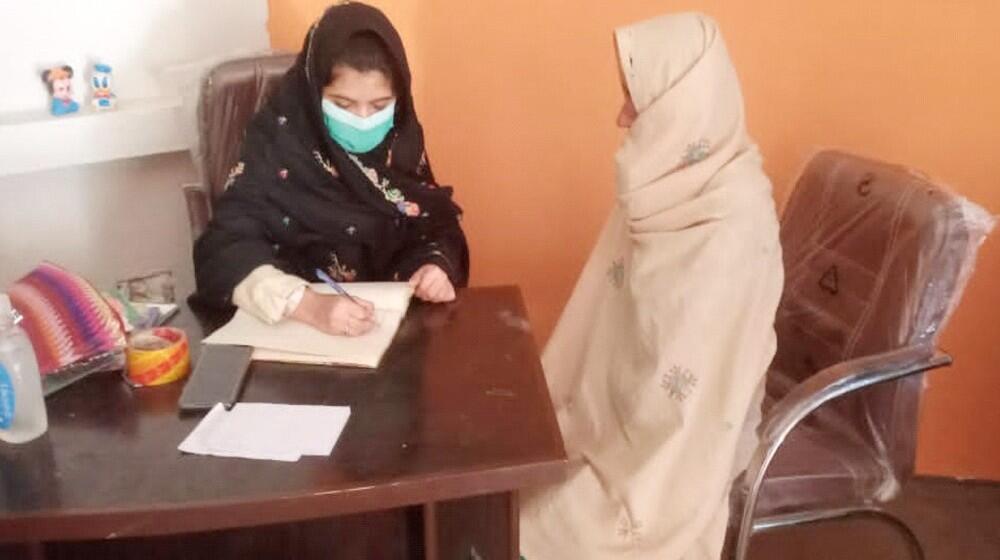Saima*, 21, from Pishin, says she had been facing physical violence from her ex-husband and her ex-mother-in-law, who used to gang up against her. Saima's husband was also her first cousin.
"Life eventually became real hell for me, and I couldn't take it anymore. I was not in favour of divorce, but I had no option in the end. I left to save my life. I was losing financial support, but that did not matter anymore."
Saima narrated her story at the Women Friendly Health Spaces (WFHS) she visited after seeing messages related to the fight against gender-based violence (GBV) displayed on the wall of the basic health unit (BHU) in her area. Services at the WFHS are supported by UNFPA, the United Population Fund, and the People's Primary Healthcare Initiative (PPHI), with funding from the Australian Government's Department of Foreign Affairs and Trade (DFAT). The centre operates under the tenets of confidentiality and privacy.
Saima lost her financial base following her divorce. She is the eldest among eight siblings; four sisters and three brothers. Her father died a few years ago, and her mother suffers from chronic illnesses. "My family depends on me for their livelihood, and we, therefore, struggled a lot after my divorce. I lived a very stressful life with no hope about the future," says Saima.
"I was in a terrible place, and I was diagnosed with depression," Saima explains. She said the counselling sessions she received at the WFHS helped her adopt a more positive outlook on life. She went through stress management techniques, cognitive behaviour therapy and other relaxation techniques.
After the first few sessions with psychologists, Saima says she felt much better and can now cope with her emotions, stress, and negative feelings.
"The violence I faced and suffered throughout my married life inflicted anxiety and depression on me. I am now engaged to someone else, but I still have some sense of fear for men. There are times I fear that my future husband may abuse me just like my ex-husband, but I am taking a chance following the counselling I have received," says Saima.
She says she now feels encouraged, safe, and comfortable to discuss her problems at the WFHS because of the psychologists' friendly environment and supportive nature. "The continuous sessions are helping me to retain a positive attitude towards my future," says Saima.
*Name changed for privacy and protection


